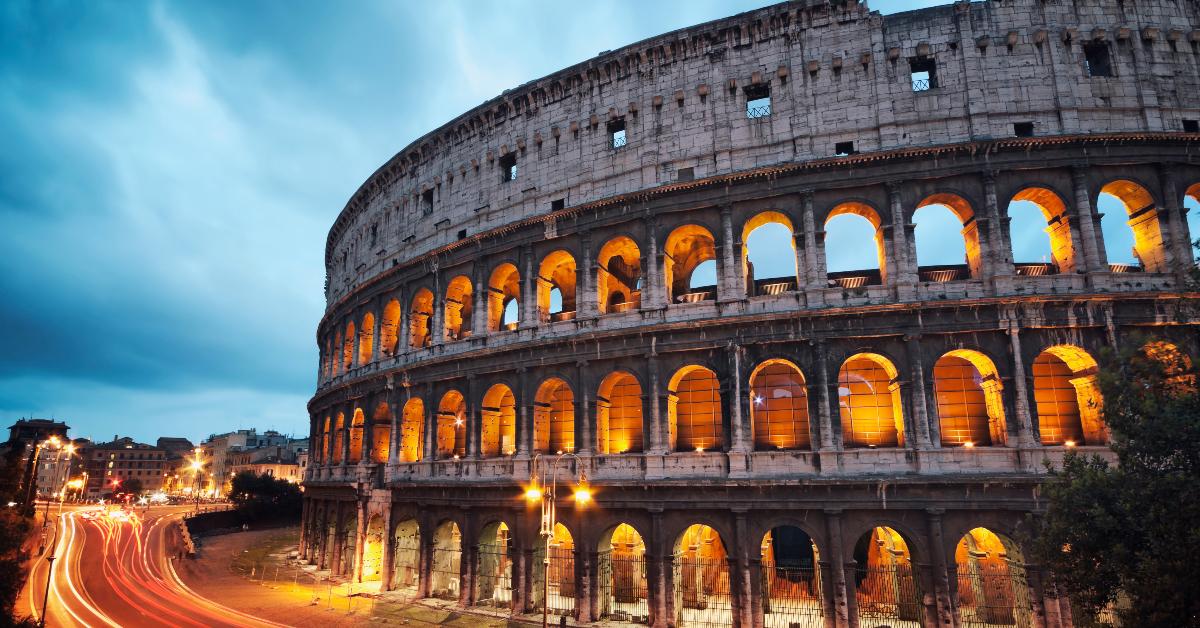
The traditionalist author Álvaro d’Ors emphasized in his work that the political thought of Rome was essentially stateless as it had a personalistic character. In contrast, Greek political thought had a territorial focus, giving rise to the idea of the state. Intellectuals who created and legitimized the idea of the state in modernity drew from Greek political thought. To abolish the state, we need to investigate what both the Greeks and Romans said. This was the work carried out by d’Ors, and it is important to recover it.
The State and Greek Political Thought
The nation-state as we currently understand it is grounded in a territorial conception. Murray Rothbard defines it as “that organization in society which attempts to maintain a monopoly of the use of force and violence in a given territorial area.” It is evident that in the flawed concept of the social contract, where a person becomes free when subjected to the general will, Jean-Jacques Rousseau, like Niccolò Machiavelli, presupposed the territorial nature of the state.
As Álvaro d’Ors appoints, this territorial idea is directly derived from the concept of the Greek polis (πόλις). Greek political thought, as depicted by Aristotle, presupposes man as a political (πολιτικός) animal, which truly means urban. It is within the city (polis), defined territorially, where man reaches his full potential. The citizens (πολίτης) presuppose a polis (πόλις), which is linked to the word πολύς, the Latin translation of which has been lost but in the Tuscan dialect meant touta, justifying the totality of the city that implies the Hellenistic territorial conception.
In Greece, the concept of policing was also understood in a monopolistic manner, as it originates from the Greek term politeia (πολιτεία), which in Plato’s works was translated as “republic” and referred to everything related to the organization of the polis. Álvaro d’Ors reminds us that the subsequent invasion of Alexander the Great and the new paradigm of the Hellenistic basileia (βασιλεύς) did not alter the Greek territorialist conception.
Feudalism and Roman Political Thought
On the contrary, during feudalism in Western Europe, there was no state, as its hierarchical organization through vassalage agreements did not allow for the existence of a supreme judge who would enforce laws. Kings, feudal lords, and bishops could all be dismissed, and vassalage agreements could be dissolved. Various communities, councils, assemblies, or associations were hierarchically structured with patrons, lords, overlords, and feudal lords. A personalistic political concept is seen, owing to the Roman influence imitated by the Germanic peoples.
Álvaro d’Ors explains that Roman politics is characterized by a personalistic idea founded on the nomen Romanun (Roman citizens). He elucidates that what gives unity to the civitas, composed of citizens (cives), is the nomen around the world with their tria nomina. The territory (territorium) doesn’t stem from an urban conception but rather from what was given to colonists, so subsequent Germanic translations of civis indicate a family connection. He goes on to explain that after the union of patricians and plebeians, the populus Romanus is created, with populus having a personal character and being related to pubes, which means pubescent citizen, forming the adjective publicus. This gives rise to the res publica as the assembly of Roman citizens with virile capacity.
In his work, d’Ors continues to explain that the empire (imperium) also implies a personal sovereign conception, not being a power confined to a city but a series of power relations that extend beyond the limits of urban territory. The provinces (provincia) themselves are only an attribution of personal competences. Furthermore, borders didn’t exist as such; limes rather refers to a trench, being a front that advanced and retreated. At the same time, the civitas itself assumes libertas, and vice versa, in contrast to the dominion (dominus), which was linked to kingship (rex). A regnum was considered less civilized.
He concludes that the Germanic provinces seceded around different regnum, and after the fall of Rome, terminology mattered less due to the influence of Christianity, as the civitas terrena is opposed to the kingdom of heaven (regnum caelorum). In the Byzantine Empire, the Greek territorialist idea dominated, but in the West, during the Middle Ages, this personalist idea of politics was not lost and was implemented in feudalism.
Conclusion
The idea of the personalist political order alone will not build a freer (or directly anarchic) society. However, just like the doctrine of natural law extended to the state, examples of territories that ended up being anarchic (like Coto Mixto) or the study of the problems of interventionism by Austrian economists can help build a narrative in favor of greater freedom.
As Professor Miguel Anxo Bastos has emphasized, “Historians are needed; he who controls history controls the narrative. . . . Everything is yet to be written.” Hans-Hermann Hoppe recalls in his study while seeking a libertarian narrative, “Why this particularly unfavorable treatment of the Middle Ages? Because, as many historians, old and contemporary, have of course noticed too, the Middle Ages represents a large-scale and long-lasting historical example of a stateless society and as such represents the opposite of the present, statist social order.”
To conclude, as presented by the traditionalist Álvaro d’Ors in his work, the Greek political organization around the polis (πόλις) is what has aided historians in shaping the ideas of the state. Therefore, historians should reintroduce the concept of the Roman civitas, and intellectuals must build a narrative around it to have a freer political order in the future—a stateless society.



